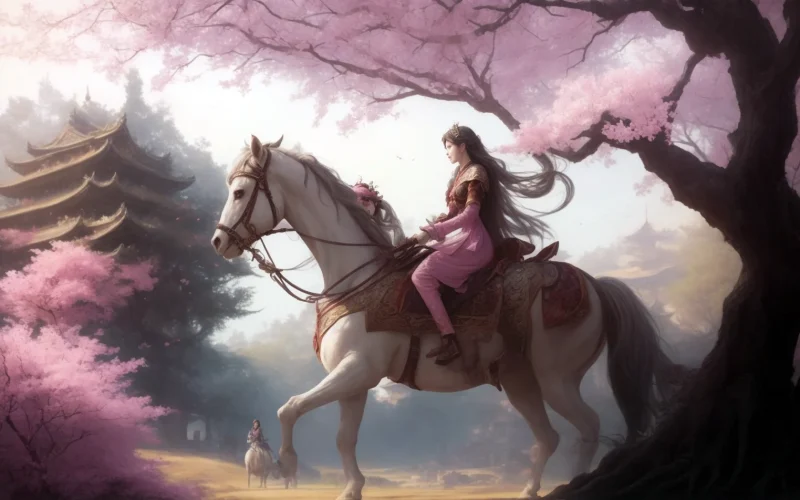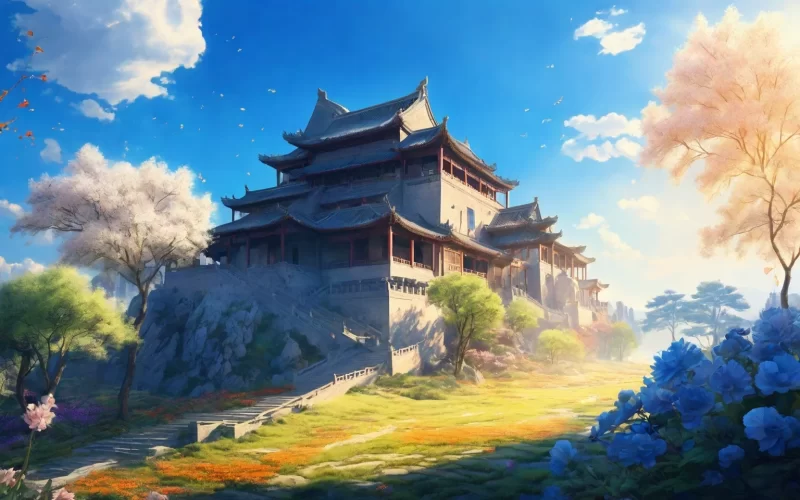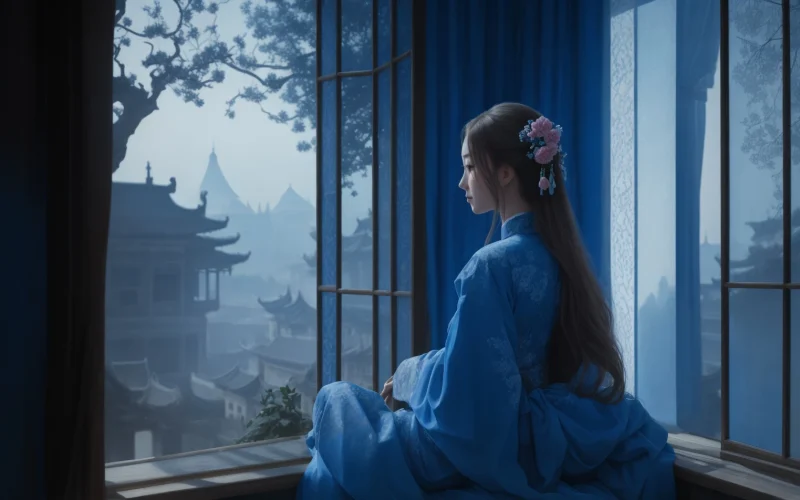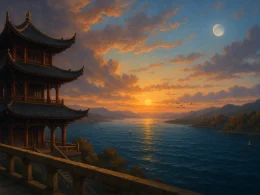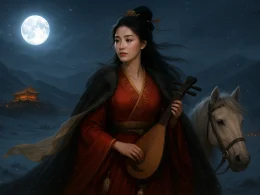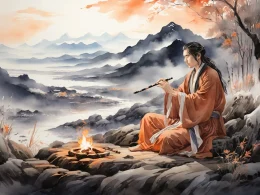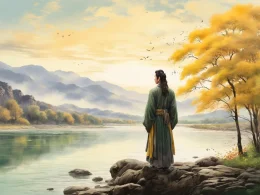The Emperor has sent for Lady Kuo Kuo. In the morning, riding toward the palace-gate, Disdainful of the paint that might have marred her beauty, To meet him she smooths her two moth-tiny eyebrows.
Original Poem
「集灵台 · 其二」
张祜
虢国夫人承主恩,平明骑马入宫门。
却嫌脂粉污颜色,淡扫蛾眉朝至尊。
Interpretation
Written during Emperor Xuanzong's declining years, this quatrain continues Zhang Hu's satirical series exposing the Yang family's abuse of imperial favor. The poem focuses on Lady of Guo (虢国夫人), third sister of Consort Yang, who - though married to Pei Yaoqing's son - enjoyed scandalous intimacy with the emperor, frequently entering the palace with arrogant ostentation. Through seemingly celebratory verses, Zhang Hu exposes the court's moral decay where imperial favor undermined state affairs and corrupted familial propriety.
First Couplet: « 虢国夫人承主恩,平明骑马入宫门。 »
Guó guó fūrén chéng zhǔ ēn, píngmíng qímǎ rù gōngmén.
The Lady of Guo basks in sovereign's grace; At dawn she rides horseback through palace gates.
This couplet doubly exposes court impropriety - as neither consort nor official, her unfettered palace access reveals extraordinary favor. The shocking image of her "riding horseback at dawn" (骑马入宫门) displays unbridled arrogance, with the poet's clinical description heightening the satire. The lines simultaneously showcase her beauty's dazzle and privilege's glare.
Second Couplet: « 却嫌脂粉污颜色,淡扫蛾眉朝至尊。 »
Què xián zhīfěn wū yánsè, dàn sǎo éméi cháo zhìzūn.
Disdaining rouge that might mar her hue, She sweeps moth-eyebrows to greet the throne.
"Disdaining" (却嫌) underscores her conceit - confident in natural beauty, she ironically appears more alluring. "Sweeps moth-eyebrows" (淡扫蛾眉) perfectly captures her calculated grooming, while "greet the throne" (朝至尊) - a ritual term for ministers - sarcastically frames her illicit intimacy. The couplet's ceremonial vocabulary viciously parodies court protocol.
Holistic Appreciation
Deceptively simple yet devastating, the poem uses Lady Guo's vanity to indict systemic corruption. Details like "horseback entry" and "greeting the throne" expose protocol violations, while "swept eyebrows" reveal pride in imperial favor. Zhang Hu's strategy of "using beauty to expose ugliness" makes the critique more potent - behind gorgeous imagery lies institutional collapse.
Artistic Merits
Continuing his "praise-as-critique" technique, Zhang Hu employs exquisite language with double-edged brilliance. Phrases like "sovereign's grace" and "swept eyebrows" simultaneously depict favor and disorder. The compact structure, vivid imagery, and layered meanings make this a paradigm of political satire disguised as romantic verse.
Insights
The poem demonstrates how unchecked imperial favor breeds moral collapse. Through Lady Guo's behavior, Zhang Hu exposes the dangers of beauty undermining governance. His satirical language remains timeless: transient favor may glitter, but signals dynastic decline. The poet's cold precision dissects courtly extravagance with surgical clarity, offering sobering perspective on power's theatrics.
Poem translator
Kiang Kanghu
About the poet
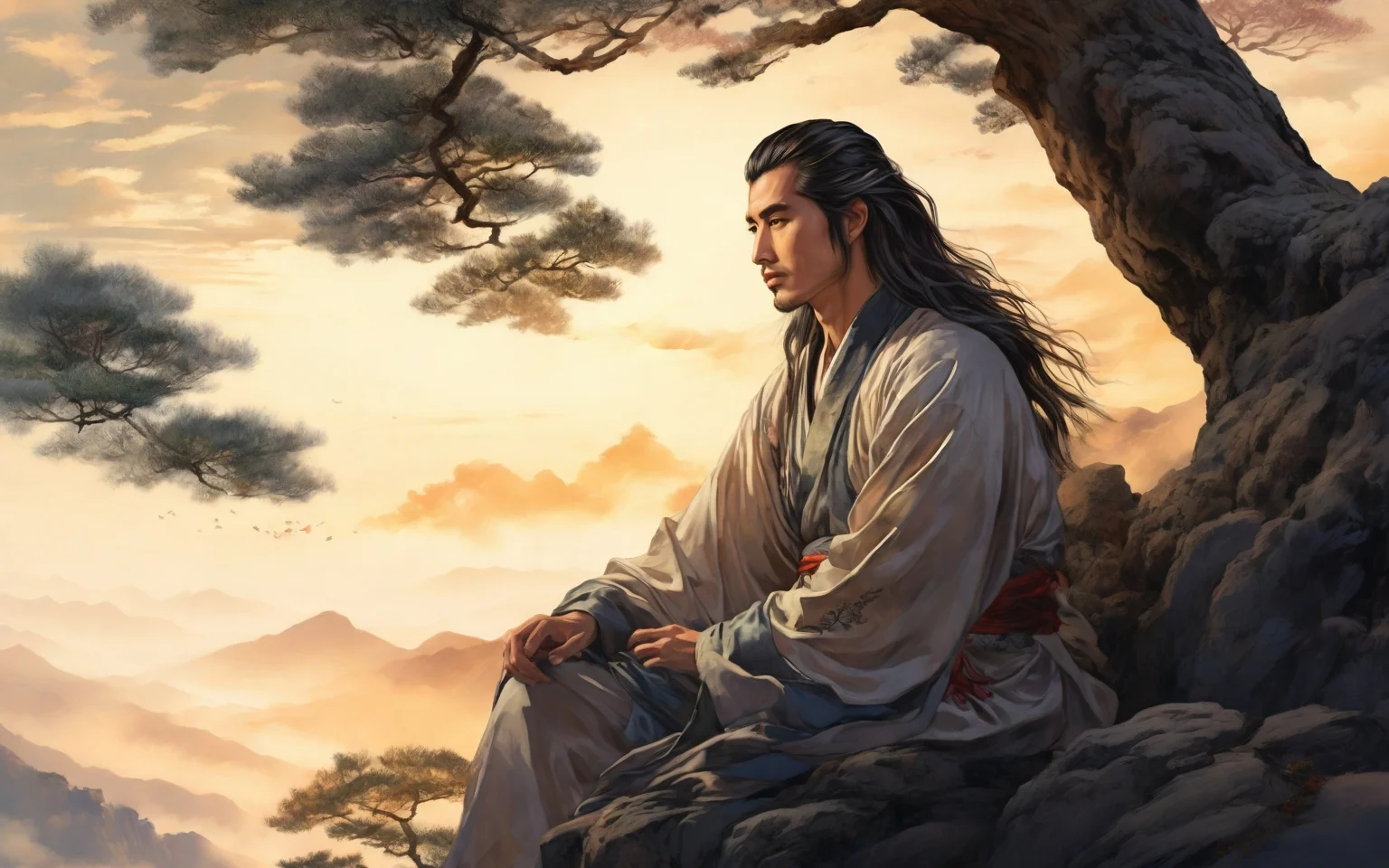
Zhang Hu (张祜) was a native of Hebei in 849 AD. - 849, a native of Hebei, never held an official position in his life, but was a good traveler of mountains and waters. Zhang Hu's poems are mostly about landscapes and famous places.






